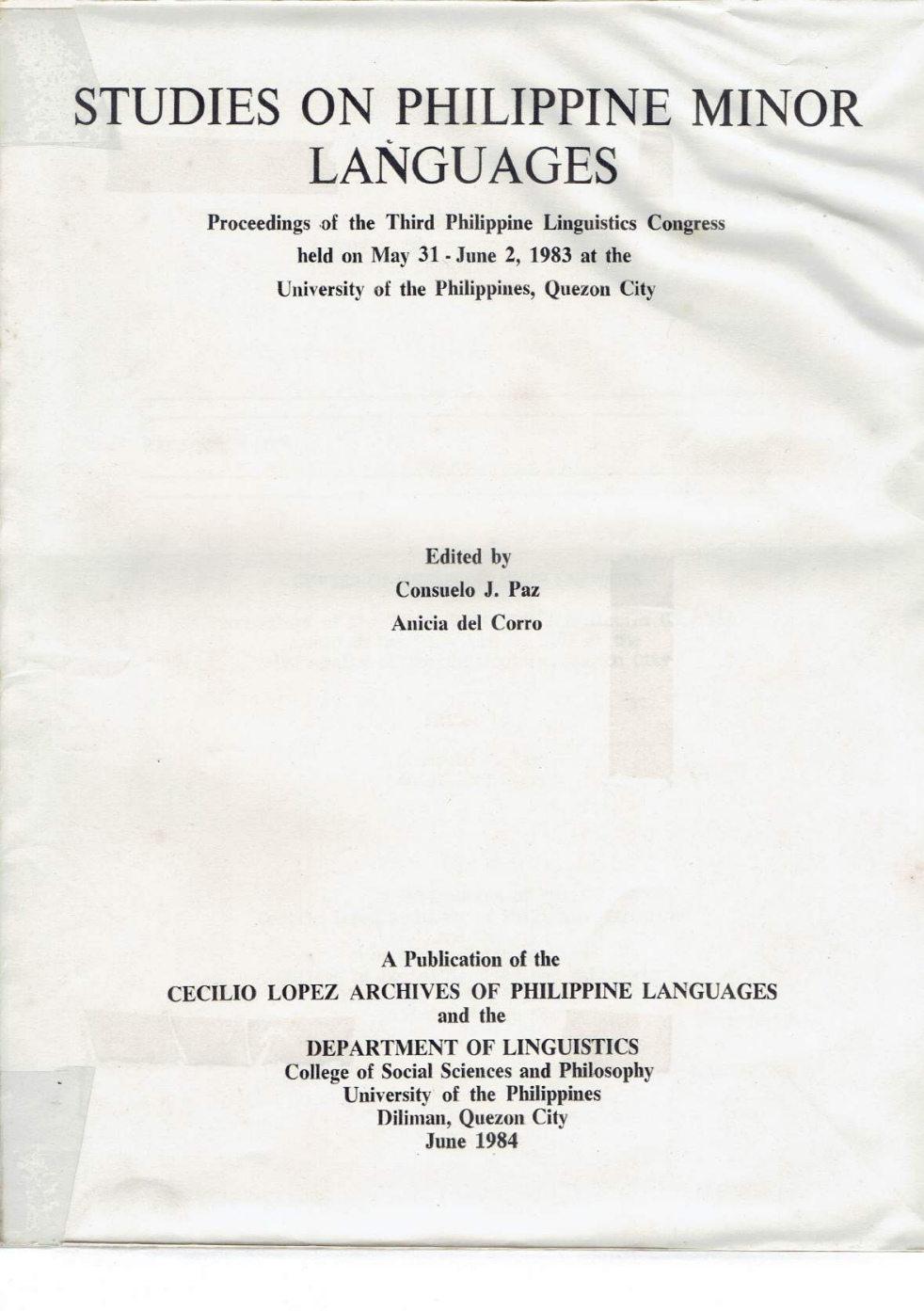From Borrowed Noun to Verb
Abstract
Lexical borrowing is generally an uninteresting phenomenon, at least to those interested only in the study of morphology and syntax. It does not seem to be anything more than the use of a foreign word in a suitable position in a sentence in the borrower language, usually a noun filling a position reserved for nouns, a verb in a slot for verbs, an adjective in a slot for adjectives, and so on. Thus in Tagalog we have sentences like “Bumili ako ng BETAMAX,” “Isang CRANKY-ng babae,” “magCLASSIFY ng data.”
But the study of loan words can be of interest to a syntactician. There is for instance, one aspect of borrowing going on in Philippine languages, both major and minor, that is of potential interest and relevance to the study of grammatical structure. I refer to the widespread and commonly observed phenomenon of borrowed noun forms being readily convertible into verbs. We have, again in Tagalog, the following: magbeer, maghamburger, maghelicopter, magtaxi, magdenims, magBetamax, magkutsara, magpocket calculator.


